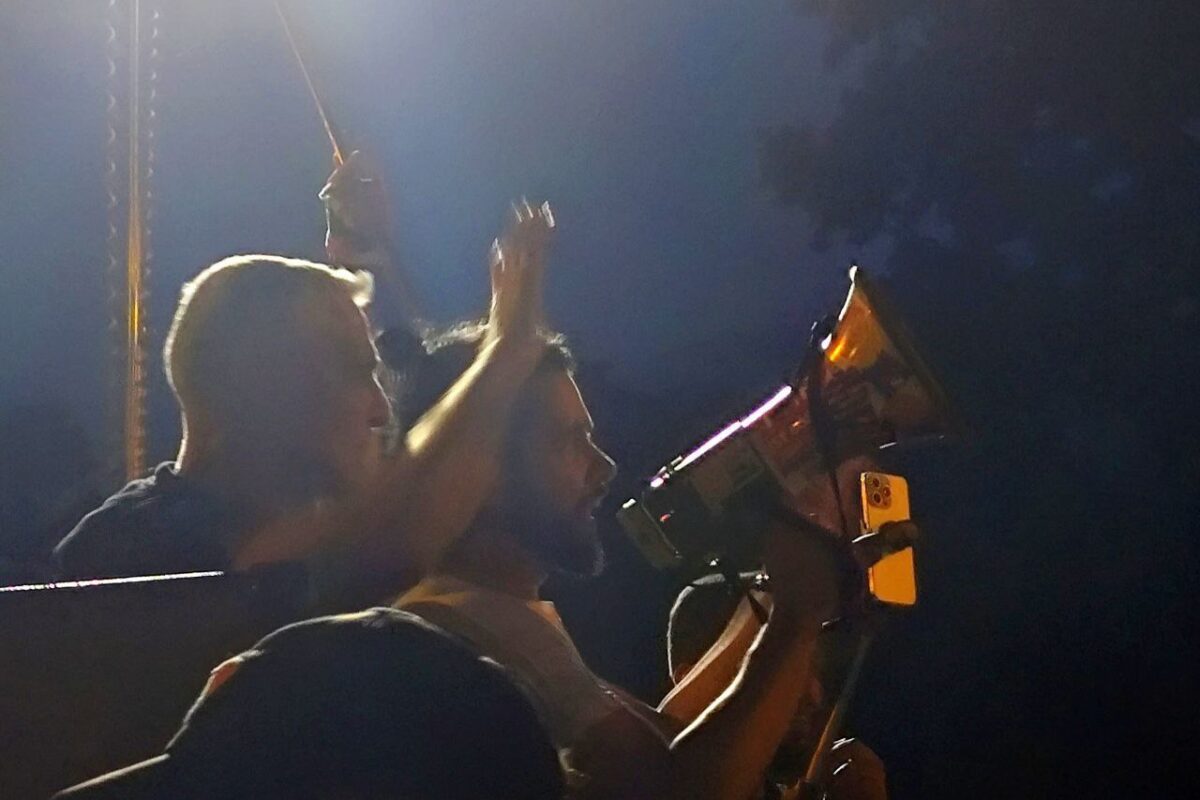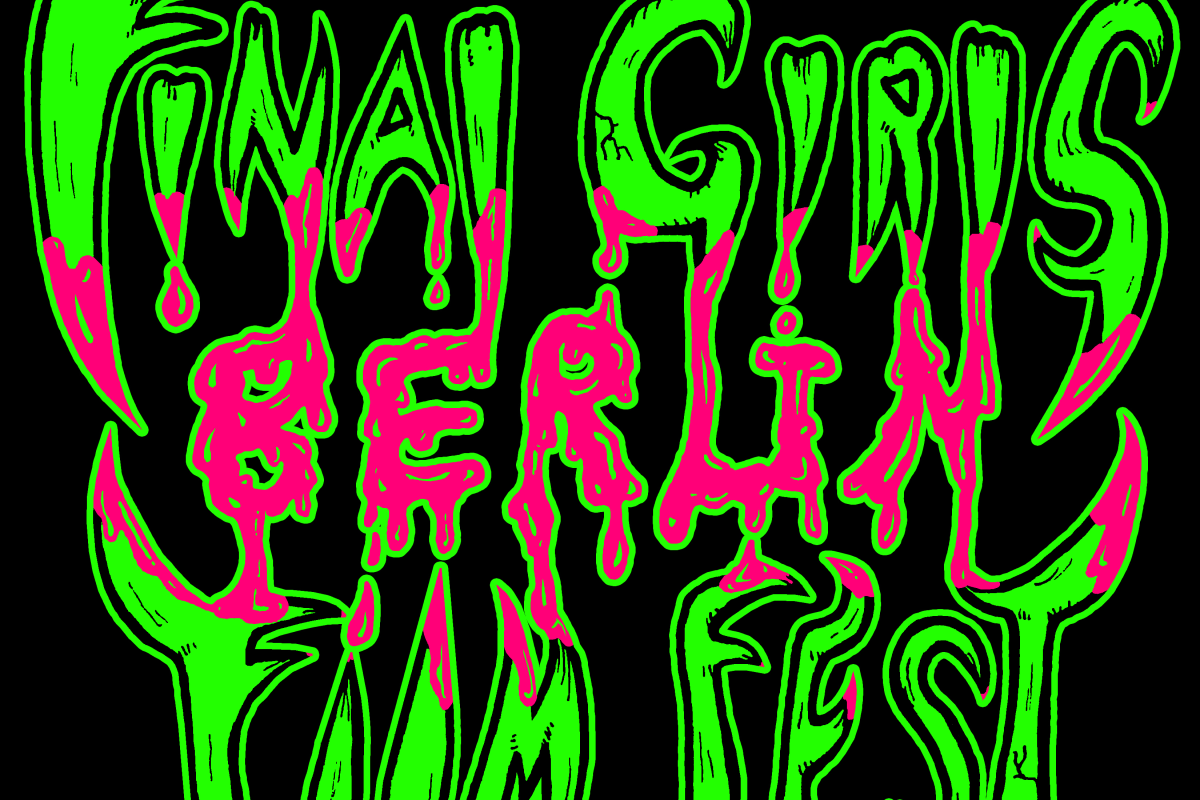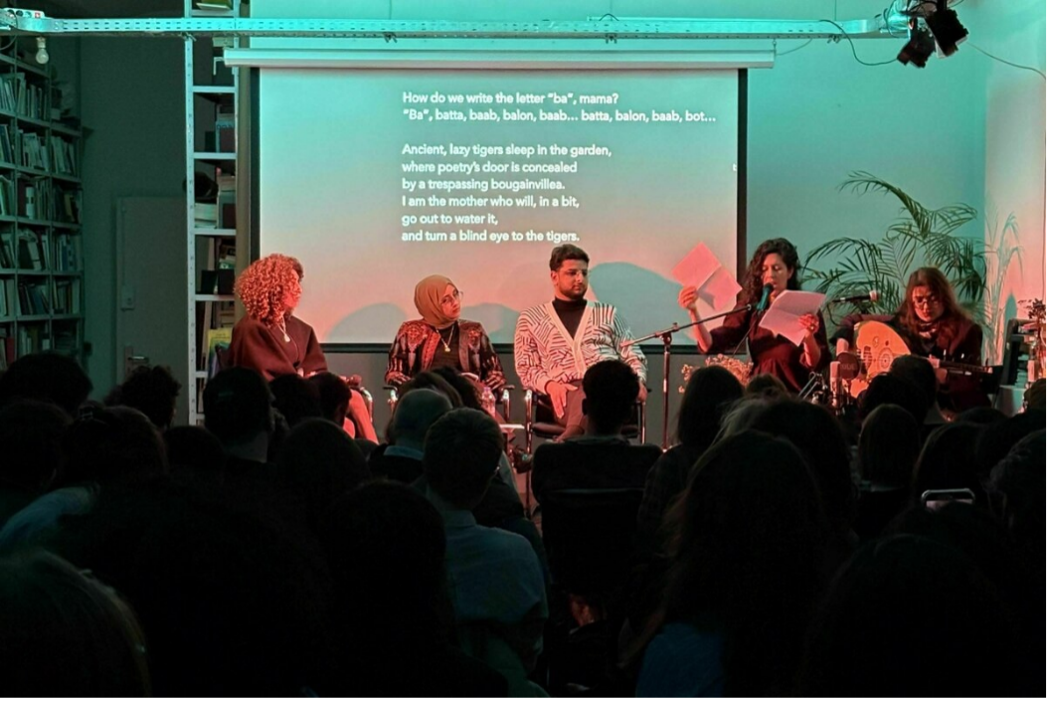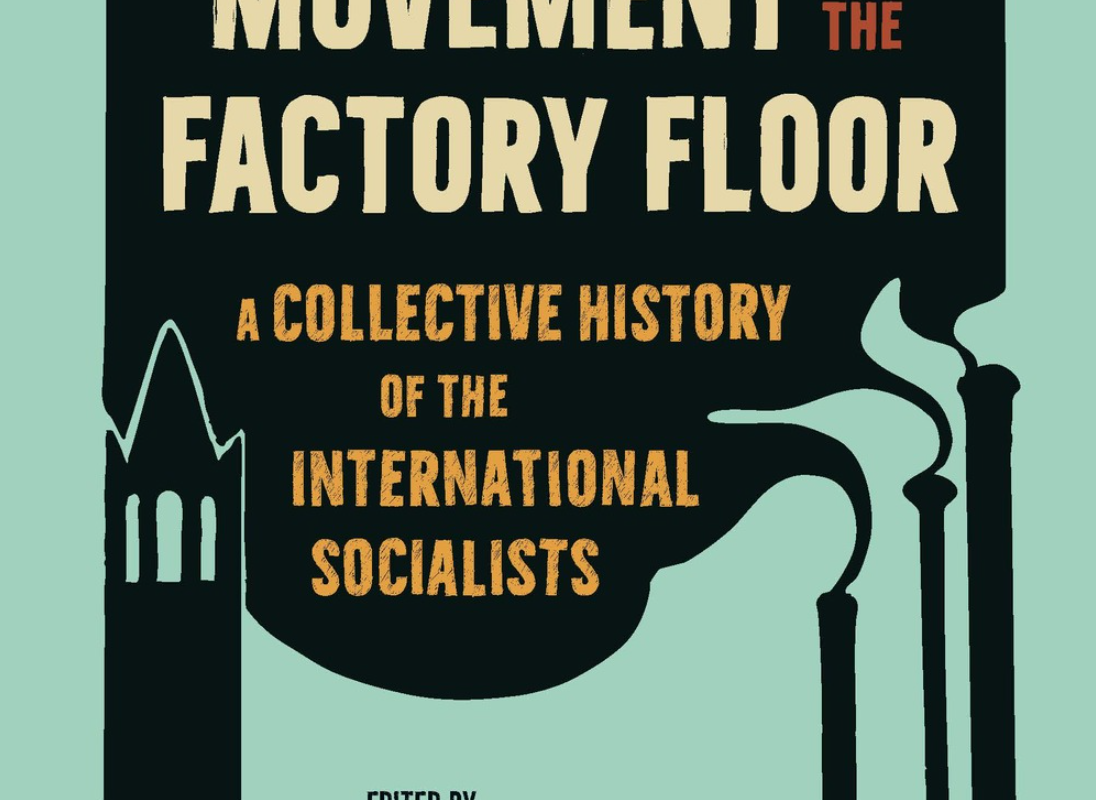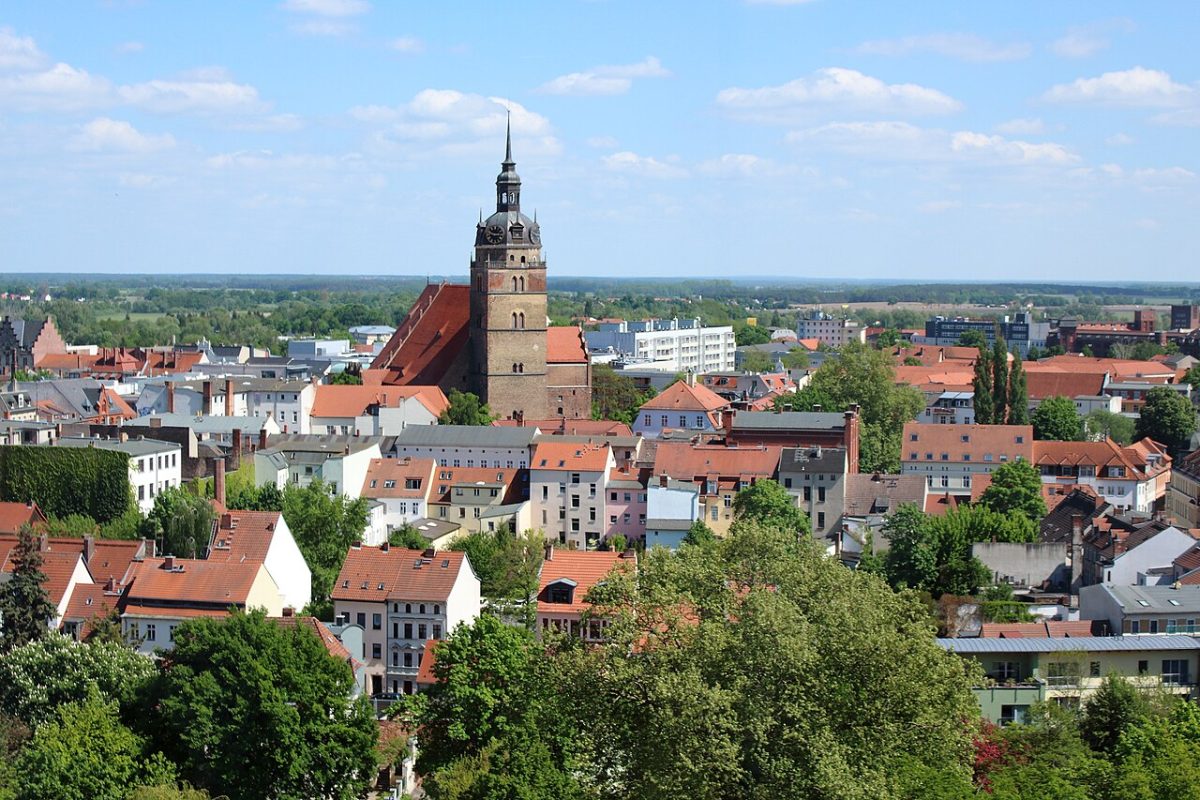The event “Beats against genocide” was organised to raise awareness among young people and the hip-hop scene about the situation in Gaza and Palestine, and of German participation in war crimes. It ended up on the almost endless list of attacks in Berlin against the freedom to assemble around the subject of Palestine.
The planned rally was a thorn in the side of the so-called security authorities from the moment that it was first registered. This can be seen in the dispute around the venue. The organisers had planned Hermannplatz, which has great meaning for the Palestinian community and people who stand in solidarity with them. Regular demonstrations against war and occupation have taken place there, and repression has often been strongest there.
In the first talks about the concert the police questioned the venue, using the shabby justification that there was not enough space. While the organisers reckoned with 300 participants, the police allegedly expected 1,000 and signaled that the public authorities would not allow Hermannplatz. Furthermore, the police argued that traffic would be obstructed, which, according to the organisers, should never be used to justify limiting the right to assembly. Protest is by its nature a disruption of the normal state of things.
As an act of goodwill, the organisers then suggested Reuterplatz. Finally the authorities allocated Südstern. The available space there is significantly smaller than at Hermannplatz. Accessibility is enormously limited by the U-Bahn station and by the several busy roads which meet there. But the police no longer showed any interest in the stated reasons of limited space and traffic safety.
Permission to assembly came with many pages of justification showing that Hermannplatz had been not allowed for political reasons because of its physical proximity to Sonnenallee. As the organisers naturally wanted their event to happen, this change of venue at very short notice was accepted and advertised.
At the event itself, it became quickly clear that the police were making changes which were not part of the previous discussions or the permission to assembly. Among these changes were the unannounced video surveillance from the beginning of the event.
As with every assembly related to Palestine, at the beginning of the event there had to be an announcement of restrictions, including the ban of burning flags and puppets. These acts are already banned, but it was implied that the attendees would be expected to do this anyway.
Only a few minutes after the beginning of the event, as the first music act appeared, the police escalated the situation. After a phrase was used from the stage which the police considered to be “criminally relevant”, several police stormed the area around the stage immediately and without any warning. They brutally arrested the suspect and injured several bystanders. The usual milder methods of protecting the right to assembly of all participants was thus ignored.
Following the violent intervention by the police, the sound system, mixer, and the microphone were no longer useable. This also resulted in the event organisers being no longer able to adequately address the provoked and enraged participants.
In the escalated situation after the police intervention, three or four people chanted “Takbir” and “Hamas, Hamas”. I also described this as problematic to the press, adding that at the same time this was drowned out by the clear majority of the gathering chanting “Free, Free Palestine”.
In order to calm down the situation, the main organiser, in consultation with other organisers, attempted to convince the police not to break up the meeting before the arrival of a replacement music system. The police were only prepared to use their own loudspeaker van to set the conditions for the continuation of the event after waiting twenty minutes.
In the intervening period, people were time and again brutally removed from the event and arrested, inclusing a woman wearing a hijab. As a reaction to the aggressive behaviour of the police, plastic bottles were thrown from the protest. I did not see any of the glass bottles which were reported by the police.
Under these aggravated conditions, the organisers found a megaphone and speaker as quickly as they could and carried out the event in a very slimmed-down form until its end around 9pm.
The trouble didn’t end here. Just before the end of the event, the police announced that participants were not allowed to leave the meeting in the direction of Hermannplatz. It was therefore only practically possible to leave Südstern and go towards Mehringdamm and Urbanstraße. At the same time there was the demand that people do not leave in large groups. The police made a peaceful dissolution more difficult, as people were not able to go home without a great detour.
The heated atmosphere between demonstrators and police has been built up over recent months through brutal police actions and demonstration bans. The right to assembly must apply to all and must not be sabotaged by the behaviour of the police.
This statement first appeared in German on Ferat Koçak’s website. Translation: Phil Butland. Reproduced with permisson.
